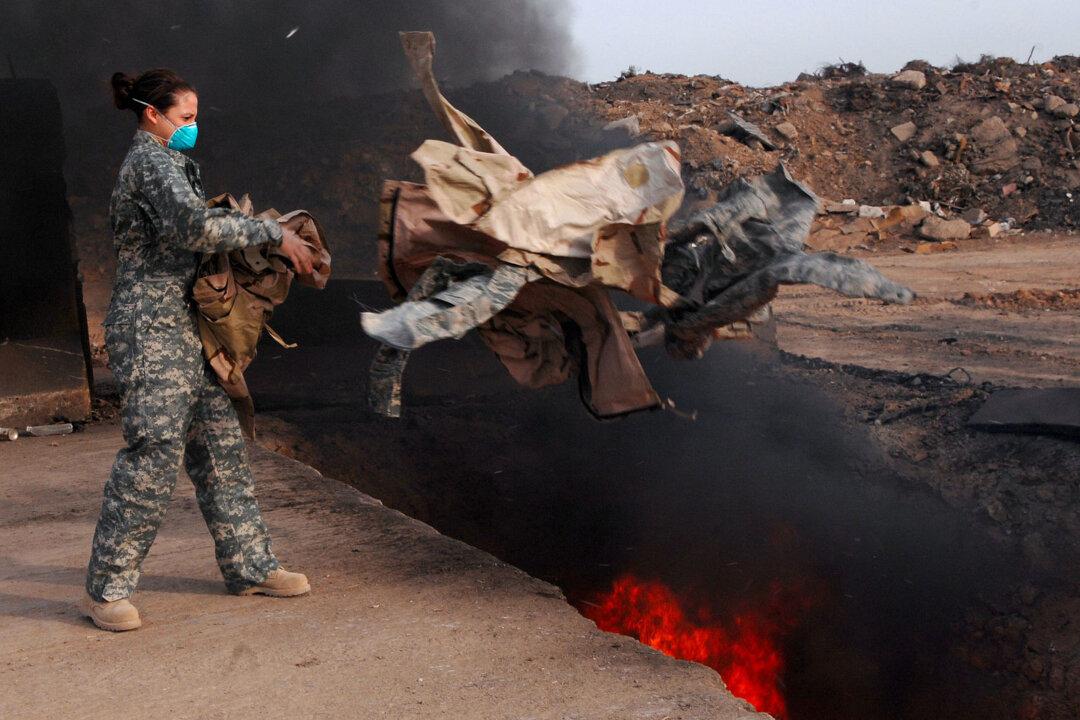America’s military adventures—and, just as often, its misadventures—have inspired thousands upon thousands of books. But the military isn’t just in the business of inspiring books: Sometimes it bans them, too.
The Pentagon recently announced that it was refusing to carry a new book by journalist (and veteran) Joseph Hickman in the stores on U.S. military bases. It’s called “The Burn Pits: The Poisoning of America’s Soldiers.”
Burn pits, NPR reports, are “acres-wide mounds of waste near bases” containing “everything from batteries to vehicle scraps to amputated body parts.” These refuse piles, once set aflame with jet fuel, can burn for 24 hours a day. They expose our troops and other personnel to deadly toxic fumes.
Banning books is bad enough. But there’s a bigger issue here: Why does the Pentagon expose our soldiers to deadly poisons and then pretend it hasn’t happened?
Hickman’s Burn Pits exposes a link between military service near burn pits in Iraq and Afghanistan and serious maladies, including everything from respiratory illnesses to rare brain cancers. Indeed, Hickman says, Vice President Joe Biden’s son Beau died of one of these rare brain cancers after serving in Iraq.
The Pentagon’s ban comes despite the fact that the book is an Amazon bestseller and has been reviewed favorably in media around the world. So it seems like a sure bet that the brass doesn’t intend to change its policy of exposing our soldiers to these deadly toxins. By officially sticking their heads in the sand, they’re hoping the problem will go away.




